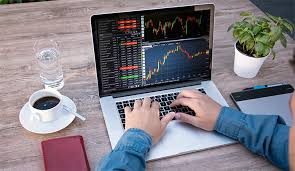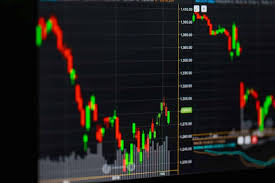
Beginner’s Guide to Forex Trading: Tips and Strategies
Welcome to the world of Forex trading! If you’re a beginner looking to delve into this intricate yet rewarding domain, you’re in the right place. There’s a wealth of information available, but it can be overwhelming. To start, it’s crucial to understand what Forex trading entails. It involves trading currencies in a decentralized market, and it’s one of the largest financial markets in the world. Here, you can buy, sell, exchange and speculate on the value of currencies. For those based in Vietnam or interested in the Vietnamese market, you can find reliable resources through beginner forex trading Trading Brokers in Vietnam.
Understanding the Basics of Forex Trading
Forex stands for foreign exchange. It’s the market where currencies are traded, and the price of one currency is determined in relation to another. There are several essential terms you need to familiarize yourself with as a beginner:
- Currency Pair: In Forex, currencies are traded in pairs (e.g., EUR/USD), indicating the exchange rate between them.
- Pips: This is the smallest price increment in a currency pair, used to measure the change in value between two currencies.
- Spread: The difference between the buy and sell price of a currency pair. It represents the broker’s profit.
- Leverage: A tool that allows traders to control larger positions with a smaller amount of capital, increasing potential profits (and risks).
Setting Up Your Forex Trading Account
Before you can start trading, you need a Forex trading account. Here’s a simple process to set up your account:
- Choose a Forex Broker: Research and select a broker that suits your trading style and needs. Look for regulations, trading fees, and the trading platform they offer.
- Open an Account: Fill out the application form and provide necessary identification documents. Many brokers allow you to open a demo account to practice without risking real money.
- Deposit Funds: Fund your account using supported payment methods. Be sure to check the minimum deposit requirements.
- Download Trading Software: Most brokers provide platforms like MetaTrader 4 or MetaTrader 5. Familiarize yourself with these tools.
Learning Trading Strategies
Having a strategy is vital for success in Forex trading. Here are some common strategies you might consider:
1. Scalping
This strategy involves making multiple trades throughout the day, aiming to profit from small price movements. Scalpers need to act quickly and maintain a disciplined approach.
2. Day Trading
Day traders buy and sell within the same trading day, avoiding overnight positions. This strategy requires continuous monitoring of the market and events impacting prices.
3. Swing Trading

Swing traders hold their positions for several days or weeks, aiming to capitalize on expected upward or downward market shifts. This approach is less time-intensive compared to scalping or day trading.
4. Position Trading
This long-term strategy requires patience and a comprehensive understanding of market fundamentals. Traders hold positions for months or years, focusing on long-term trends.
Risk Management in Forex Trading
Risk management is paramount to ensure longevity in Forex trading. Here are some effective techniques:
- Use Stop-Loss Orders: A stop-loss order automatically closes a position when it reaches a certain price, helping you limit losses.
- Position Sizing: Determine how much of your capital you’re willing to risk on a single trade. As a rule of thumb, never risk more than 2% of your capital on one trade.
- Diversification: Avoid putting all your money into one currency pair. Diversifying can reduce risk exposure.
Choosing the Right Trading Platform
Your trading platform plays a critical role in your Forex trading experience. Consider the following when choosing:
- User-Friendly Interface: The platform should be intuitive and easy to navigate, especially for beginners.
- Real-Time Charts: Ensure that the platform provides reliable and real-time market data.
- Variety of Tools: Look for technical analysis tools, indicators, and market news features.
- Mobile Accessibility: A platform that allows you to trade on-the-go is essential for many traders today.
Continuous Education and Practice
Forex trading is not a one-time learning experience. The market is constantly evolving, and staying informed is key. Consider engaging in the following:
- Online Courses: Many platforms offer courses specifically designed for beginners.
- Webinars and Workshops: These provide live interaction with experts and can deepen your understanding of complex topics.
- Join Trading Communities: Engaging with other traders can provide invaluable insights and a support network.
Conclusion
Embarking on your Forex trading journey can be both exciting and challenging. The knowledge you gain and the experiences you gather will undoubtedly shape your capabilities as a trader. Start with a solid foundation, develop your strategy, and always prioritize risk management. Most importantly, stay patient and keep learning. Success in Forex trading doesn’t happen overnight; it’s a gradual process. With dedication and continuous education, you can navigate this complex market and achieve your trading goals.
Happy trading!